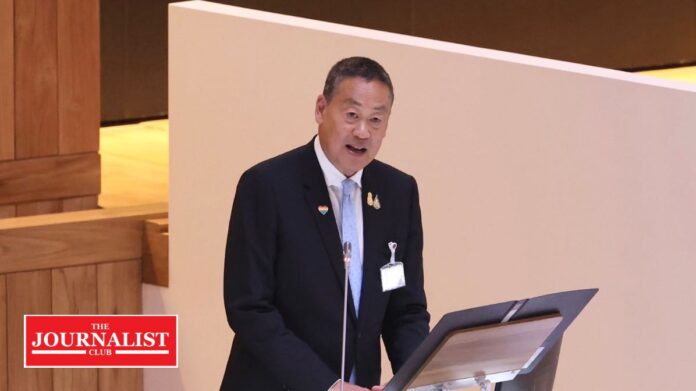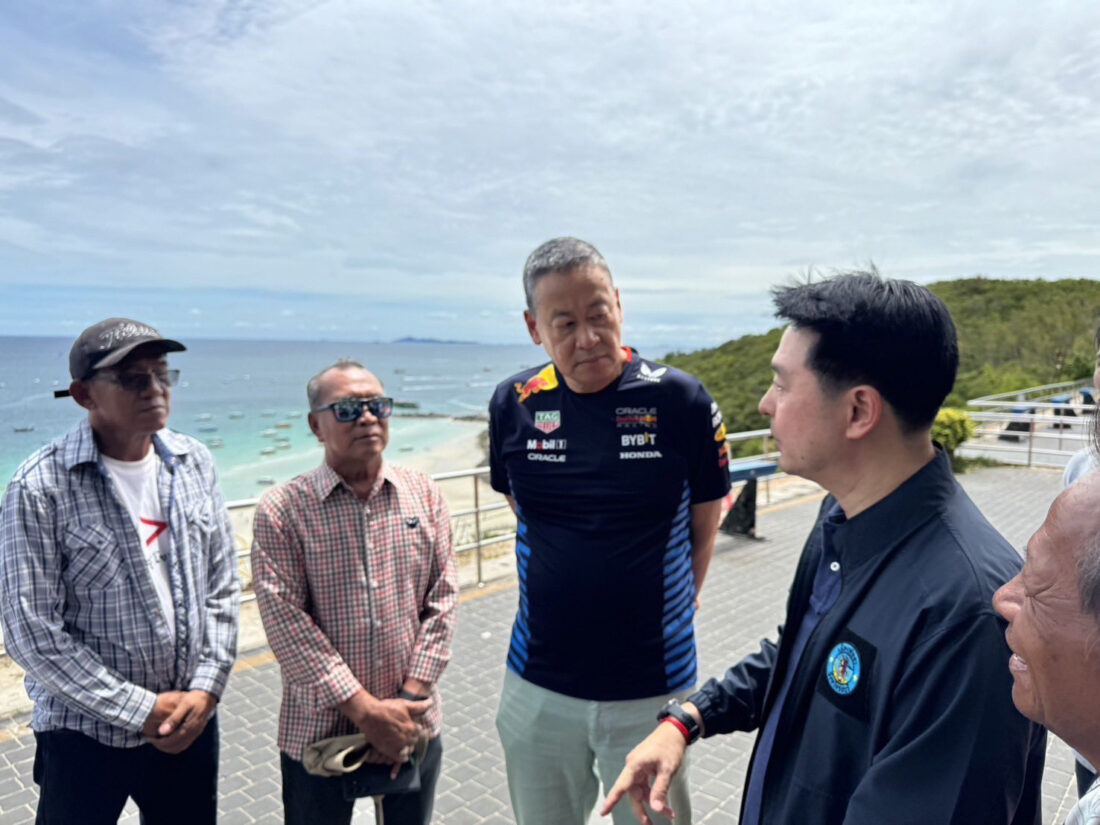

The Council of the OECD has decided on this June, 17 to open accession discussions with Thailand, making it the second country from Southeast Asia to become an OECD accession candidate this year.
The decision builds on many years of increasing co-operation and engagement with Thailand, including through two phases of a dedicated OECD-Thailand Country Programme since 2018, supporting Thailand’s reform agenda focused on becoming a high-income country by 2038.
Since its establishment in 2014, Thailand has also been a very active participant in the OECD’s Southeast Asia Regional Programme (SEARP) serving as co-chair with Korea between 2018 and 2022.
“With Indonesia and now Thailand, OECD Members have made decisions to open accession discussions with both the biggest and second biggest economies in Southeast Asia, one of the most dynamic growth regions of the world,” OECD secretary-general Mathias Cormannsaid.
“It is a clear demonstration of the OECD’s commitment to further strengthen,
deepen and broaden our active engagement with Southeast Asia, a region of strategic priority for our Organisation,” he said.
The accession processes benefit to Thailand
“The accession processes will benefit Indonesia and Thailand as well as the OECD. Adherence to OECD standards
and best practices will have a beneficial impact on development and growth for accession countries and the region more generally,
and the OECD’s work will benefit from the important input of the two most significant economies of Southeast Asia, supporting our Organisation’s global relevance and impact,” secretary-general Cormann said.
Over the past decade, Thailand has significantly increased its participation in OECD bodies,
policy reviews, and selected databases, and has already adhered to a number of OECD legal instruments.
The first three-year Country Programme signed in May 2018 focused on governance, transparency, competitive business conditions and inclusive growth.
In March 2023, the Programme was renewed for a second phase,
bringing in a green recovery workstream and aiming to continue bringing the country closer to OECD standards.
“Since the 1960s, Thailand has achieved remarkable economic and social progress,
becoming one of the first countries in Southeast Asia to open its economy, actively pursue integration into global value chains and attract foreign direct investment,” secretary-general Mathias Cormann said.
The accession process will help Thailand to reform
“The accession process to the OECD will help anchor Thailand’s reform agenda moving forward – further improving its attractiveness as an investment destination, to help drive further growth and improvements in incomes and living standards,” he said.
The decision to open accession discussions responds to a formal request from Thailand in February 2024 and follows an assessment by OECD member countries conducted on the basis of the Organisation’s evidence-based Framework for the Consideration of Prospective Members.
A draft accession roadmap for the technical review process will now be prepared by the Secretary-General for the consideration of the OECD Council.
The review process will include a rigorous and in-depth evaluation by more than 20 technical committees of Thailand’s alignment with OECD standards,
policies and best practices. As a result of these technical reviews, recommendations will be made on further areas for reform,
to align Thailand’s legislation, policies and practices with OECD standards and best practices.
The technical reviews will cover a wide range of policy areas and will focus on priority issues including open trade
and investment, progress on public governance, integrity and anti-corruption efforts,
as well as the effective protection of the environment and action to tackle climate change.
No deadline for completion
There is no deadline for completion of the accession processes. The outcome and timeline depend on the accession country’s capacity to adapt
and adjust to align with OECD standards and best practices. Once all the technical committees have completed their reviews and are consistent with article 16 of the OECD Convention,
a final decision to issue an invitation to join will need to be taken by unanimity of all OECD Members.
However, the National Economic and Social Development Council projected the accession process may take five years. The process needs full cooperation from both public and private sector.
The decision showed Thailand shares values and goals with OECD

The Thai Foreign Ministry reported the decision attests to the fact that Thailand shares values and goals with OECD members; namely, democracy, rule of law, human rights
and open and transparent market economy, and that Thailand conducts impactful economic diplomacy at all levels and has continuous
and meaningful cooperation with the OECD. Moreover, the decision, taken by consensus among OECD members, also reflects close and cordial relations between the members and Thailand.
The accession process may take many years to complete. Nevertheless, from the early stages,
various reforms will help Thailand attract more foreign investment, increase income,
improve the living standard of the people, and also increase Thailand’s role in international policy-making.
The Thai government is firmly committed to advancing the accession process towards its successful completion. The process will be inclusive, involving all stakeholders,
with the Ministry of Foreign Affairs and the National Economic and Social Development Council as the focal agencies.
Crucial step of Thailand in the international stage
Government Spokesperson Chai Wacharonke disclosed that the OECD has decided open accession discussions with Thailand. This is a crucial step for the country to becoming OECD member,
and being recognized once again at the international stage.
He said Prime Minister Srettha Thavisin has committed to elevate Thailand in all areas on par with the international standard,
including promotion of sustainable investment, and business environment improvement to ensure good governance and sustainability.
“OECD’s decision to open accession discussions with Thailand reflects its confidence on the country’s goals and values that are in line with other OECD economies, i.e., democracy, the rule of law, human rights, and open and transparent market economy. Thailand has also been a very active participant and significantly increased its participation in OECD activities and policy reviews. The Thai Government stands ready to work closely together with OECD in the future process of accession discussions.”
PM committed to advancing the accession process

Thailand determines to present its strengths and shared interest, and will collaborate with OECD to prepare a draft accession roadmap for the technical review process. Once all the technical committees have completed their reviews, OECD will make a final decision to issue an invitation for Thailand to join.
Mr Chai said with his determination to proceed with Thailand’s accession to OECD,
the PM strives to raise awareness and encourage participation of all concerned sectors in moving the country forward through attracting foreign investments,
generating more income and enhancing quality of life of the people, improving national competitiveness, and elevating Thailand’s role at the international stage.
He also thanked OECD member economies for unanimously approving the accession discussions which demonstrates Thailand’s friendly relations with various countries.
Related News : Thailand has applied for OECD membership










